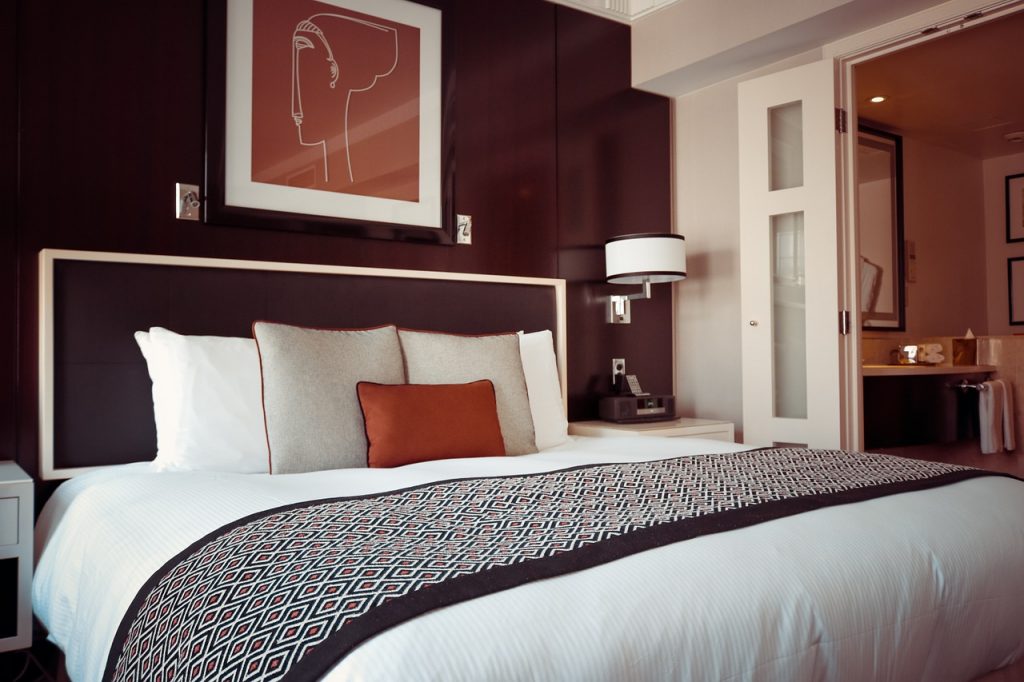Hotel Rooms Nationwide Are Getting Dirtier, Here’s Why
Hotel room cleanliness standards are not being met due to inflated costs of cleaning supplies, staff shortages, additional costs for hotels, and poor management.
This article is more than 2 years old

Hotel rooms are usually preferred over Airbnbs and motels due to their reputation for cleaning services and amenities. It seems as though hotels now are facing backlash for the lack of housekeeping. This is due to reasons such as shortages beginning in the pandemic.
For many people, staying at a hotel is a chance to escape the stress and mess of everyday life. Clean, comfortable hotel rooms can provide a welcome away from the chaos of travel or work. So how often should your temporary living space be cleaned?
Many factors influence how well a room may be maintained, but the pandemic is a major one. The pandemic has resulted in inflated costs of cleaning supplies, staff shortages, additional costs for hotels. These all affect the level of room service and housekeeping hotel guests receive.
According to NYTimes, Stephanie VanDerSchie returned to her hotel room in Wisconsin with her three kids, after a long day of skiing, only to find their room in shambles. Their sheets were untucked, garbage was full, and their wet towels were in piles on the bathroom floor. Stephanie paid $200 a night, so it was safe to assume she’d at least get new towels and basic cleaning.
One of the primary reasons for the decline in cleanliness of hotel rooms could be attributed to the changing priorities of hotel management. As the industry becomes more competitive, hotel owners chose to cut costs to increase profits. According to a report from the American Hotel and Lodging Association, post-pandemic levels of hotel occupancy have nearly matched pre-pandemic ones.
Some hotels have decreased their cleaning budgets in order to cut costs resulting in a decrease in cleaning frequency and quality. Paired with increasing demand for rooms puts pressure on cleaning staff to complete their work quickly. Another factor is the use of outsourcing companies to provide cleaning services, which can lead to inconsistent cleaning practices.
Another factor that could contribute to the decline in cleanliness of hotel rooms is the increase in guest demands. With the rise of social media and online reviews, guests have become more vocal about their expectations for hotel cleanliness.This shift in priorities may lead hotel owners to prioritize offering these amenities over maintaining clean rooms.
The NYTimes notes that mid-level hotels by chains like Hilton, Marriott, Sheraton and Walt Disney World Resorts, are seeing these changes. Guests may need to specifically request complimentary daily housekeeping. Otherwise, guests will have to tidy their own hotel rooms.
Marriott is launching a new tier-based housekeeping system for guests. Those who pay more could expect a higher level of service. Their highest-end properties such as the Ritz-Carlton, will continue to have free daily cleanings.
However, at the next level such as Sheraton, guests would get a free “daily tidy.” Full housekeeping would be every other day. Lastly, guests at other brands would get their rooms cleaned less frequently. The decline in hotel room cleanliness has a significant impact on guests. If guests perceive that their rooms are not clean, this can lead to a decrease in guest satisfaction, loyalty, and an increase in negative reviews. In addition, dirty rooms can increase the risk of exposure to germs and other pathogens, which can result in illness and negative health outcomes.










